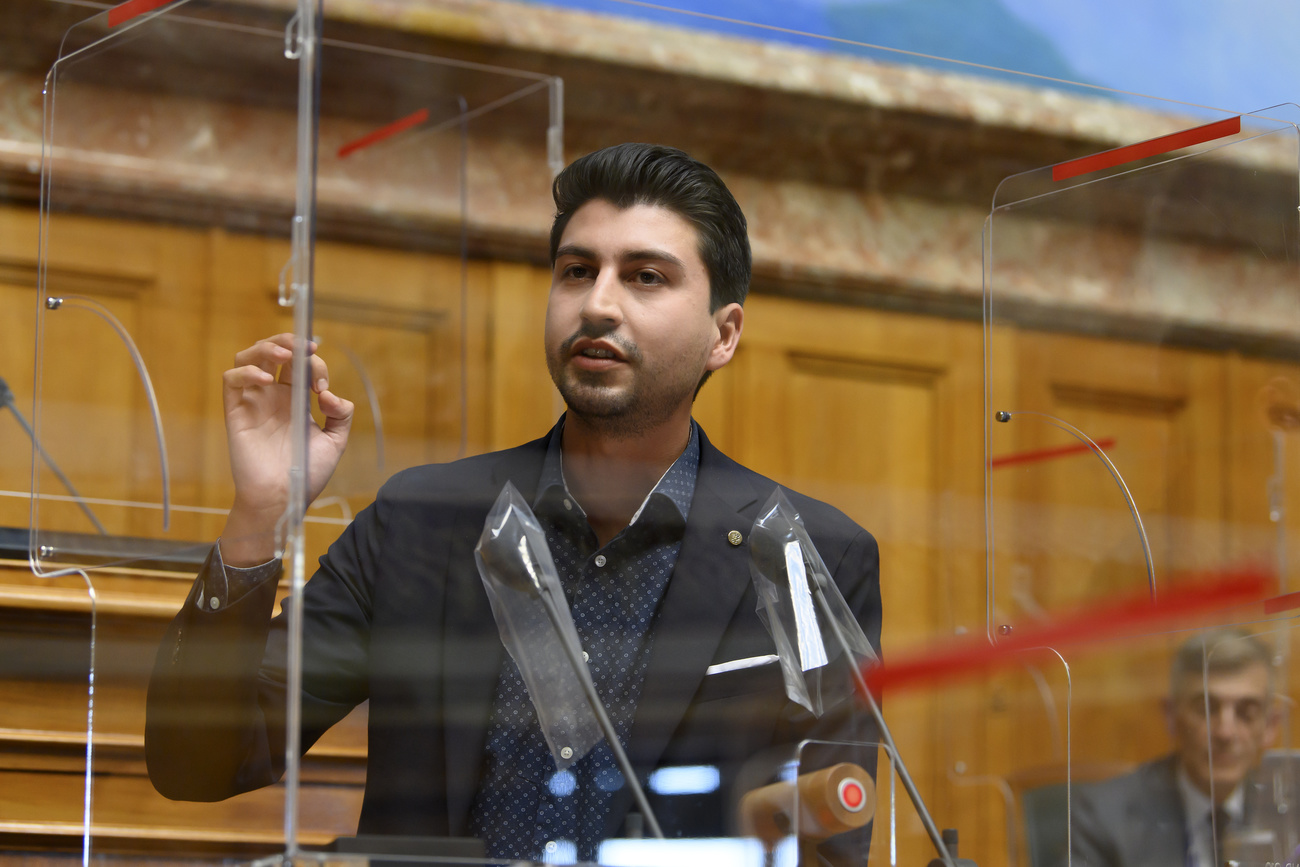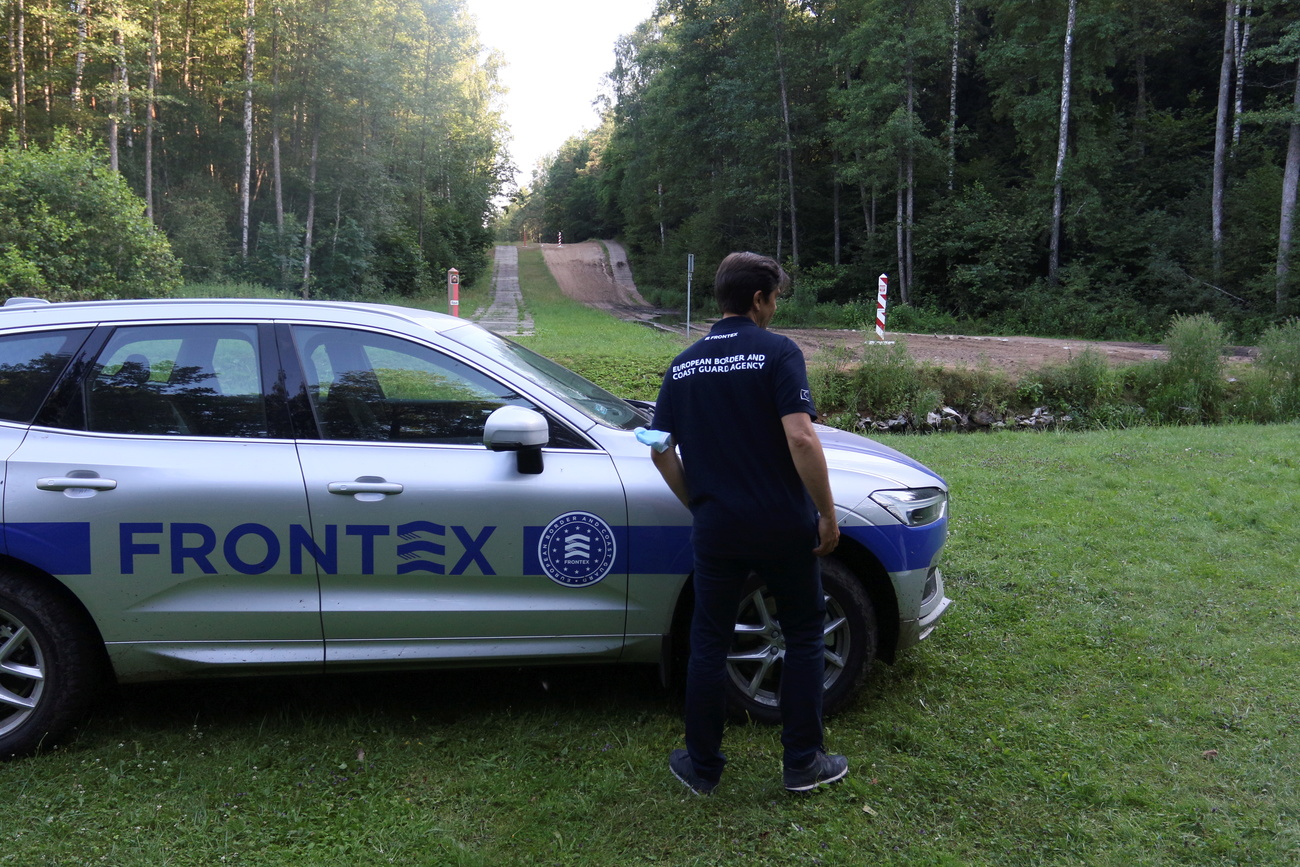Swiss agree to boost funding of European border agency

Voters have endorsed a parliamentary decision to increase Switzerland’s contribution to the European Frontex border agency.
Final results from Sunday’s ballot show 71.5% of voters came out in favour of the legal amendment to support Frontex with up to CHF61 million ($60.8 million) annually by 2027 – an increase from CHF24 million last year.
“Swiss voters put security and membership in the single border Schengen system above ethical concerns,” said Urs Bieri, co-director of the GfS Bern polling institute.
“They believe that problems should be tackled by investing more resources in the border agency,” Bieri told SRF public radio.
Migrant organisations which tried to veto a parliamentary decision, described the defeat as “a disgrace”.
Security
Finance Minister Ueli Maurer, who is in charge of border guards, said the campaign of the supporters had successfully convinced voters of the need to increase security to protect Switzerland.
He said the country was committed to ensuring the respect of basic human rights by Frontex staff. “It’s obvious that improvements are necessary, and more transparency in particular,” he told a news conference.
Maurer said the result meant that Swiss police could continue to rely on the shared European database to track down criminals, and that asylum seekers could benefit from better legal protection.
He stressed that it was key for the country’s tourism sector that Switzerland remains part of the single border Schengen system allowing visa-free entry into Switzerland.
“The result won’t do any harm for the cooperation with the European Union,” quipped Maurer, who is known for his scepticism towards the Brussels-based EU.
Complicity
Opponents of the financial package expressed frustration about the defeat.
“Switzerland will be complicit in the death of and violence against tens of thousands of people,” said campaigner Sophie Guignard.
Left-wing parties, including the Greens and the Social Democrats, said the Swiss government had a responsibility to demand reforms of Frontex and prevent human rights abuses, including illegal pushbacks.
As part of an overhaul, Frontex is boosting staff to patrol the external borders of the 26-member Schengen Area.
Switzerland is planning to gradually increase its staff at the agency from currently six to 40 full-time positions.
Fighting crime, handling asylum flows
Frontex is financed by the EU as well as four member states of the European Free Trade Association including Switzerland, in line with countries’ gross domestic product.
The agency foresees a total staff of up to 10,000 by 2027 to fight cross-border crime (trafficking of drugs, weapons and human beings) and to manage migratory flows, including the repatriation of rejected asylum seekers.
Switzerland shares its borders with four EU member states. It joined the Schengen single-border area and the Dublin asylum accord in 2008 following a nationwide vote. It has been contributing to the Frontex budget since 2011.
In 2005, just over 54% of voters approved Switzerland’s participation in Europe’s single border system.
Parliament
Last September, a majority of parliament approved a government plan for a higher financial contribution, arguing it is in Switzerland’s own interest to participate in securing European borders.
The otherwise relatively low-key campaign in the run-up to Sunday’s referendum vote was marked by a controversy over the potential consequences of a No vote.
A prominent senator and law professor, Daniel Jositsch, accused the justice ministry of scare-mongering. He dismissed allegations that Switzerland would be automatically excluded from the European single border system.
Advocacy groups, including the non-governmental Refugee Council and Amnesty International, did not take a stance on the vote.
Organ donations – presumed consent 60.2% Yes 39.8% No
Funding European Frontex border agency 71.5% Yes 28.5% No
Reform Swiss film law (“Netflix law”) 58.4% Yes 41.6% No
Turnout: 40.3%
About 5.5 million Swiss citizens, including registered expat Swiss were eligible to take part in the votes.

In compliance with the JTI standards
More: SWI swissinfo.ch certified by the Journalism Trust Initiative















You can find an overview of ongoing debates with our journalists here . Please join us!
If you want to start a conversation about a topic raised in this article or want to report factual errors, email us at english@swissinfo.ch.